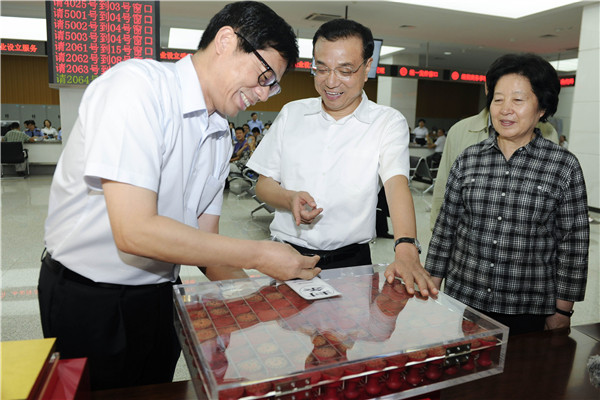
Inside the National Museum lays a special collection of 109 red stamps, which were tokens of government’s approval powers.
Now these stamps are history, with the ongoing reform of streamlining administration and delegating power to lower-level governments.
Premier Li Keqiang witnessed the moment they were sealed while on a visit to Tianjin in September 2014.
Each one of the 109 stamps was a barrier to the market, and people were annoyed that they had to secure dozens of stamps for official approval to start a business.
Efforts must be made to reform the administrative approval system, Premier Li said during his first press conference for the “two sessions”, adding that the market should play a major role.
The reform is swift and efficient. By January 2017, 618 administrative approvals of State Council departments were cancelled, and 283 local administrative approvals were abolished with effective measures to cut service fees.
In fact, the rule of law is one of the objectives to change governmental functions, Premier Li said, adding that the government should deepen administrative reform, streamline administration and optimize services.
More efforts shall be made to build a law-based, innovative, clean and service-oriented government, he said.
According to the World Bank report on global business environment ranking, in 2016 China had moved up 18 places since 2013.
Meanwhile, in 2016, 5.52 million new enterprises were established in China, 24.5 percent higher year on year, indicating a mushrooming growth of market players in the nation.
Premier Li said the fundamental goal of reform is to liberate and develop productivity, and the biggest benefit of China’s reform is to mobilize the people and unleash their creativity.